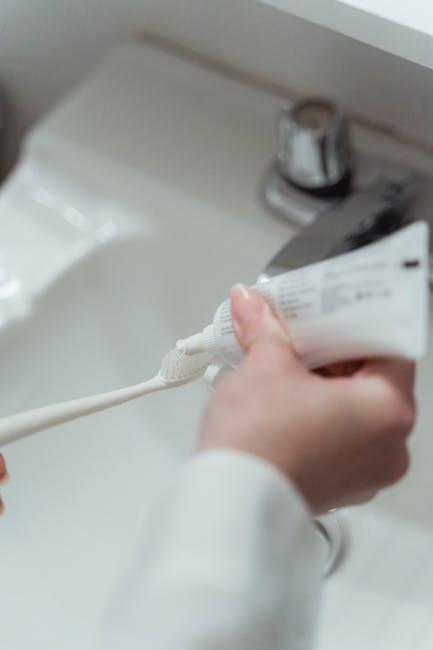Fluoride Q&A: An Expert Breaks Down How It Helps Kids, and Its Unique History in Michigan – Michigan Medicine
Fluoride is widely recognized as one of dentistry’s greatest tools to prevent tooth decay — especially in children. But despite its proven benefits, many parents and caregivers have questions: How exactly does fluoride protect young smiles? Why does Michigan have such a unique history with water fluoridation? To help clear up these common questions, an expert from Michigan Medicine shares key insights on fluoride and its impact on kids’ dental health.
What Is Fluoride and How Does It Work?
Fluoride is a naturally occurring mineral found in water, soil, and various foods. It plays a vital role in strengthening tooth enamel and reversing early signs of tooth decay. Here’s how fluoride helps protect kids’ teeth:
- Re-mineralizes Enamel: Fluoride helps rebuild weakened tooth enamel by attracting calcium and phosphate ions, making teeth more resistant to acid attacks from bacteria.
- Prevents Decay: By interfering with the bacteria’s ability to produce acid, fluoride reduces dental cavities and decay.
- Protects Deciduous Teeth: Fluoride benefits baby teeth by keeping them strong until permanent teeth develop.
How Is Fluoride Delivered to Kids?
- Water Fluoridation: Community water systems in Michigan add fluoride to municipal water, providing everyone with daily cavity prevention.
- Fluoride Toothpaste: The easiest and most widely used fluoride source for children (generally recommended for kids over age 2).
- Professional Treatments: Dentists may provide fluoride varnishes or gels during visits for extra protection.
Fluoride and Kids: Safety and Recommendations
Many parents worry about fluoride safety, especially for young children. Here’s what you need to know:
- Safe Levels: When used properly, fluoride is safe for children. Overuse can lead to dental fluorosis (tiny white spots on teeth), which is mostly cosmetic and not harmful.
- Age Guidelines: For children under 3, fluoride toothpaste should be used only if recommended by a dentist. For kids ages 3-6, use a pea-sized amount of fluoride toothpaste.
- Community Protection: Fluoridated water helps protect all children, including those who lack regular dental care access.
The Unique History of Fluoride in Michigan
Michigan holds a noteworthy place in America’s fluoride story, being one of the pioneering states for water fluoridation and demonstrating measurable public health benefits.
Historical Highlights
| Year | Event | Significance |
|---|---|---|
| 1945 | Grand Rapids, MI Starts Water Fluoridation | First city in the world to fluoridate public water supply |
| 1950s-60s | Studies Confirm Decline in Tooth Decay | Significant reduction in cavities observed in children |
| Present | Over 75% of Michigan residents receive fluoridated water | Ongoing community dental health benefits statewide |
Grand Rapids’ pioneering role influenced national policy, showing the world the effectiveness of fluoride—and nearby Michigan communities continue to lead in educating parents about fluoride benefits for kids.
Benefits and Practical Tips for Parents
Top Benefits of Fluoride for Children
- Reduces rate of cavities by up to 50%
- Decreases dental treatment needs and costs
- Supports healthy, strong tooth enamel during growth
- Accessible and affordable preventive care
Practical Tips to Maximize Fluoride Benefits
- Use fluoride toothpaste daily for children over 2 years old.
- Encourage kids to spit out toothpaste, not swallow it.
- Check if your local water is fluoridated via your city’s public works or health department.
- Maintain regular dental visits for fluoride varnish treatments as recommended.
- Promote a balanced diet low in sugary snacks and drinks.
First-Hand Perspectives: Pediatric Dentist Insights
Dr. Emily Foster, a pediatric dentist affiliated with Michigan Medicine, notes, “Fluoride is one of the simplest, safest ways to reduce cavities in children, especially in communities with fluoridated water. Our experience in Michigan has shown that kids living in fluoridated areas develop stronger teeth and fewer dental problems.”
She adds, “It’s important for parents to start good fluoride habits early, use appropriate amounts of toothpaste, and not fear fluoride but respect its power in oral health.”
Conclusion
Fluoride remains a cornerstone of children’s dental health, offering an effective defense against tooth decay through multiple delivery methods, particularly water fluoridation. Michigan’s historic leadership in this public health initiative underscores the mineral’s importance and demonstrates real-world success in protecting young smiles.
By understanding fluoride’s benefits, safety, and using it correctly, parents can confidently protect their children’s teeth for a lifetime of healthier smiles. For more personalized guidance, reach out to a dental professional at Michigan Medicine or your local dentist.


